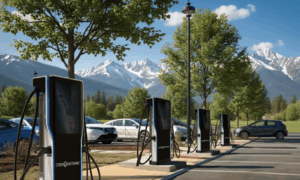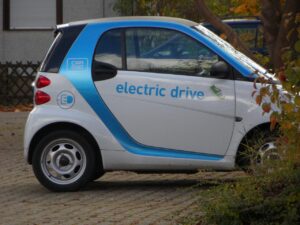
Home / EV Charging News / Types of Electric Car Charging Connectors: Exploring the Evolution and Diversity
Electric car charging connectors serve as the interface between charging stations and electric vehicles, enabling the transfer of electric power for battery replenishment. These connectors come in different types and standards, each designed to meet specific requirements and regional preferences. Understanding the nuances of these connectors is essential for EV owners, charging network operators, and electric vehicle manufacturers alike.
Type 1 connectors, also known as SAE J1772 connectors, are commonly used in North America and Japan. They feature a single-phase AC connection and are compatible with a range of electric vehicles. Type 1 connectors are characterized by their ergonomic design, safety features, and standardized communication protocols, ensuring seamless interoperability across charging networks.
In Europe, Type 2 connectors, often referred to as Mennekes connectors, have become the standard for electric vehicle charging. These connectors support both single-phase and three-phase AC charging, offering increased flexibility and faster charging capabilities. Type 2 connectors feature a robust design, integrated safety mechanisms, and compatibility with various charging infrastructures prevalent in European countries.
The Combined Charging System (CCS) represents a significant advancement in EV charging technology by combining AC and DC charging capabilities in a single connector. CCS connectors enable rapid charging, supporting high-power DC charging for faster battery replenishment. This standardization streamlines charging infrastructure deployment and enhances compatibility across different EV models and charging stations.
CHAdeMO connectors, primarily used by Japanese electric vehicles, specialize in rapid charging capabilities. These connectors support high-power DC charging, allowing for quick charging sessions and extended driving ranges. CHAdeMO connectors have evolved to meet the growing demand for rapid charging infrastructure, making them integral to long-distance travel and urban charging networks.
Tesla electric vehicles feature proprietary connectors designed specifically for compatibility with Tesla’s Supercharger network. These connectors support rapid DC charging, providing Tesla owners with convenient access to fast charging stations across various locations. Tesla’s connector design emphasizes charging speed, reliability, and integration with Tesla’s advanced battery management systems.
A comparative analysis of Type 1, Type 2, CCS, CHAdeMO, and Tesla connectors reveals diverse charging capabilities, speeds, and compatibility with different charging networks. EV manufacturers, charging station operators, and policymakers must consider connector standards and interoperability to ensure seamless charging experiences for EV owners worldwide.
Efforts towards global standardization and interoperability are underway to harmonize electric car charging connectors and streamline EV charging infrastructure development. Emerging trends such as wireless charging technologies, smart connectors, and bidirectional charging capabilities are shaping the future of EV charging, promising enhanced convenience, efficiency, and sustainability.
As the electrification of transportation accelerates, the diversity and evolution of electric car charging connectors play a crucial role in shaping the infrastructure supporting EV adoption. Understanding the characteristics, compatibility, and standards of charging connectors is paramount for stakeholders across the EV ecosystem. With ongoing advancements and standardization efforts, the future of electric vehicle charging is poised for greater accessibility, reliability, and sustainability, driving us towards a cleaner and greener mobility paradigm.



